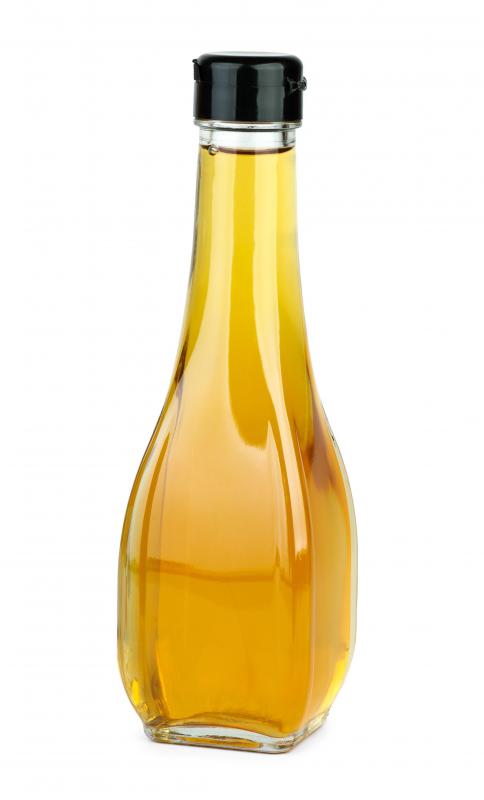At DelightedCooking, we're committed to delivering accurate, trustworthy information. Our expert-authored content is rigorously fact-checked and sourced from credible authorities. Discover how we uphold the highest standards in providing you with reliable knowledge.
How Do I Choose the Best Champagne Vinegar?
A relative newcomer outside France, champagne vinegar is available in many higher-end markets and most health-food stores. Since this type of vinegar can be a bit on the pricy side, you want to make sure you are getting your money’s worth. Quality champagne vinegar comes from certain wine grapes, has a specific color and consistency, has a light flavor, and is sold under specific market conditions.
Champagne vinegar is, as the name implies, vinegar made from sparkling, effervescent champagne or sparkling wine — the accepted name for champagne produced outside northern France. Champagnes and sparkling wines are traditionally made from a mix of chardonnay and pinot noir grapes, though some brewers use a mix of chardonnay and pinot blanc grapes. Quality champagne vinegar, then, will also be made from these grapes. Check the label to ensure you are getting the real stuff. Avoid any vinegar that does not list the source grapes.

Another feature of high-quality champagne vinegar is its color and consistency. Like the champagne it is made from, champagne vinegar should be light in color, ranging from pale gold to apricot orange, never brown like apple cider vinegar or dark red like balsamic vinegar. Champagne-based vinegar should also have the consistency of water. To judge this, tilt the bottle. If the vinegar moves slowly or coats the sides of the container, it has been sitting around too long and should be avoided.

Quality champagne vinegar should have a light, mild flavor, with less acidity than white wine vinegar, apple cider vinegar, and other commonly-used culinary vinegars. This is why culinary experts recommend using this type of vinegar when making delicate dishes where a stronger vinegar would overwhelm other flavors. Some high-end supermarkets will let you taste the vinegar before you buy it. If you can, take advantage of the opportunity and find a vinegar you really like.

Finally, quality champagne-based vinegar is sold under certain market conditions. Though less volatile than its parent tipple, vinegar degrades quickly if exposed to heat, humidity, or intense light. Vinegar should be located away from your market’s produce department and in a cool part of the store. The market itself should appear clean, with no visible dirt on shelves or floors and no discernible “off” smells.
AS FEATURED ON:
AS FEATURED ON:













Discuss this Article
Post your comments